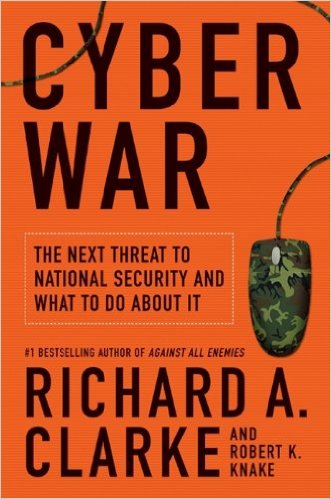
BE AFRAID. BE VERY AFRAID. If you’ve been conjuring up nightmare visions of terrorists toting suitcase nukes to Chicago or San Francisco, get ready for an even more ominous threat. The term of art is “cyber war,” and because in theory it poses no direct threat to human life, it may strike the casual observer as no more than a potential nuisance. But for Americans, cyber war is to terrorism as a lethal influenza epidemic is to mad cow disease: the latter may be unspeakably awful in its effects, but few people are affected — and the former has potential to wreak nationwide damage impacting millions.
Estimated reading time: 4 minutes
Forget technical definitions: the threat of cyber war means that a future enemy of the U.S., potentially a rogue state as well as a rival power, could immobilize the U.S. military, destroy the nationwide power grid, bring all our transportation networks using planes and trains and trucks to a halt, and wipe out the international financial system — all by hacking into the vulnerable computer systems that run these functions through their connections to the Internet. In other words, cyber war has the potential to catapult the United States back to the 19th Century, if not the Stone Age . . . in a matter of days!
Cyber War: The Next Threat to National Security and What to Do About It by Richard. A. Clarke and Robert K. Knake ★★★★☆
Richard A. Clarke knows whereof he writes. From the early 1970s until George W. Bush’s invasion of Iraq, he filled high-level national security positions under seven Presidents, from Nixon to Bush the Younger, and he advised candidate Barack Obama on national security issues. In an earlier, bestselling book (Against All Enemies: Inside America’s War on Terror), Clarke provided an authoritative, high-level perspective on the evolution of policy and action against the non-state entities classified as terrorists by the U.S. government. Against All Enemies was largely an indictment of Bush Administration national security policies, and it raised its author’s profile and made him an easy target for knee-jerk, Right-Wing attacks.
Although Clarke is generally supportive of President Obama, Cyber War is, like the earlier book, a full-throated critique on the shortsightedness and misdirection of the Obama Administration’s weak-kneed response to a potential cybernetic attack. The book is detailed in relating several little-known recent examples of cyber war activity, in its portrayal of the cyber war games played within the U.S. government in recent years, in conveying the long history of prescient official studies about cyber war and how they were disbelieved or entirely ignored, and, perhaps most important of all, in laying out a full-bore policy prescription to prepare the U.S. for a major cyber attack.
The policies Clarke recommends in this important book are, presumably, the same he tried — unsuccessfully — to sell to the Obama Administration. Which explains why Clarke, still under the age of 60 and eminently qualified for a very high national security position, is working on his own as a consultant rather than extending his three-decade career in government.
For further reading
Another book brings additional information to light about our government’s involvement in cyber war: see my review at Concerned about NSA surveillance? Read this book! For another, less authoritative but still informative take on this subject, see The secret history of cyber war. And for a broader view of internet security, see Fancy Bear Goes Phishing: The Dark History of the Information Age, in Five Extraordinary Hacksby Scott J. Shapiro (An entertaining history of hackers and hacking).
This is one of the many Good nonfiction books about national security.
It’s also one of the books I’ve included in my post, Gaining a global perspective on the world around us.
Like to read books about politics and current affairs? Check out Top 10 nonfiction books about politics.
And you can always find my most popular reviews, and the most recent ones, on the Home Page.



























